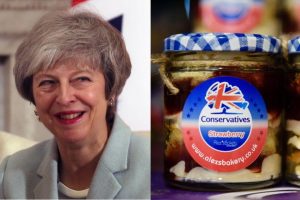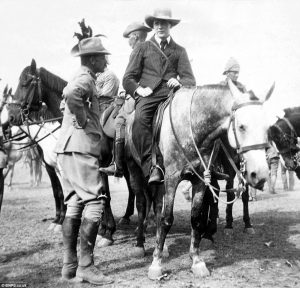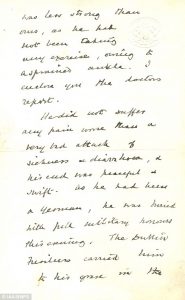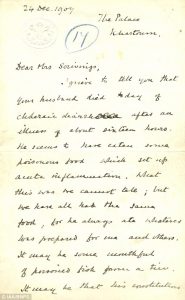Microganisms are only visible when they are numerous.
 I would throw away the entire jam to get rid of the unseen bugs, which number in the trillions.
I would throw away the entire jam to get rid of the unseen bugs, which number in the trillions.
Theresa May, chief Brexit strategist, PM and armchair microbiologist, shocked the UK by telling a Cabinet meeting Tuesday that she “will not throw away a jar of jam if it has gone mouldy on top” according to the Daily Mail,
Instead, the newspaper reported, “she scrapes off the mould and eats the good preserve left underneath”.
May considered the rest of the jam to be “perfectly edible”, a Whitehall source told the Mail, and instead of binning food past its best-before date shoppers should “use common sense” to check if it’s edible.
The tip came during a Cabinet discussion on how to reduce food waste.
Social media immediately set about debating on whether this was good food advice, but more importantly, whether it was a metaphor for Brexit.
Nick Miller of The Canberra Times writes, some asked if Brexit was a case of “jam tomorrow.”
As the country lurches towards a potential no-deal Brexit, featuring potential food and medicine shortages, there has been a new focus on making the most of indigenous food supplies.
The UK is Europe’s biggest producer of citrus jams and marmalades, however France is by far the biggest producer of other types of jams and purees, followed by Germany.
 If there are significant customs delays then breakfasts across the UK could be disrupted.
If there are significant customs delays then breakfasts across the UK could be disrupted.
It may also be significant that the British government has been simulating the immense traffic jams expected to materialise around its southern ports if there is a no-deal Brexit.
Interestingly, the British government revealed in 2016 that its post-Brexit ‘Food and Drink International Action Plan’ would include a major campaign to sell British jam to Australia.
Asked on Wednesday if May thought people should follow her example, the Prime Minister’s spokesman said it was a “matter for the individual”.
Time magazine reported in 2015 that “when visible mould is present, its tentacles – called ‘threads’ – have likely penetrated deep into your food [unless it’s a hard cheese], contaminating even those parts that appear to be mould-free”.
They added that mould exposure can produce mycotoxins leading to respiratory problems, allergic reactions and even cancer.
However, in 2014, a “mould expert” told the BBC that “the moulds you find on jam are fine – just scrape them off”.




